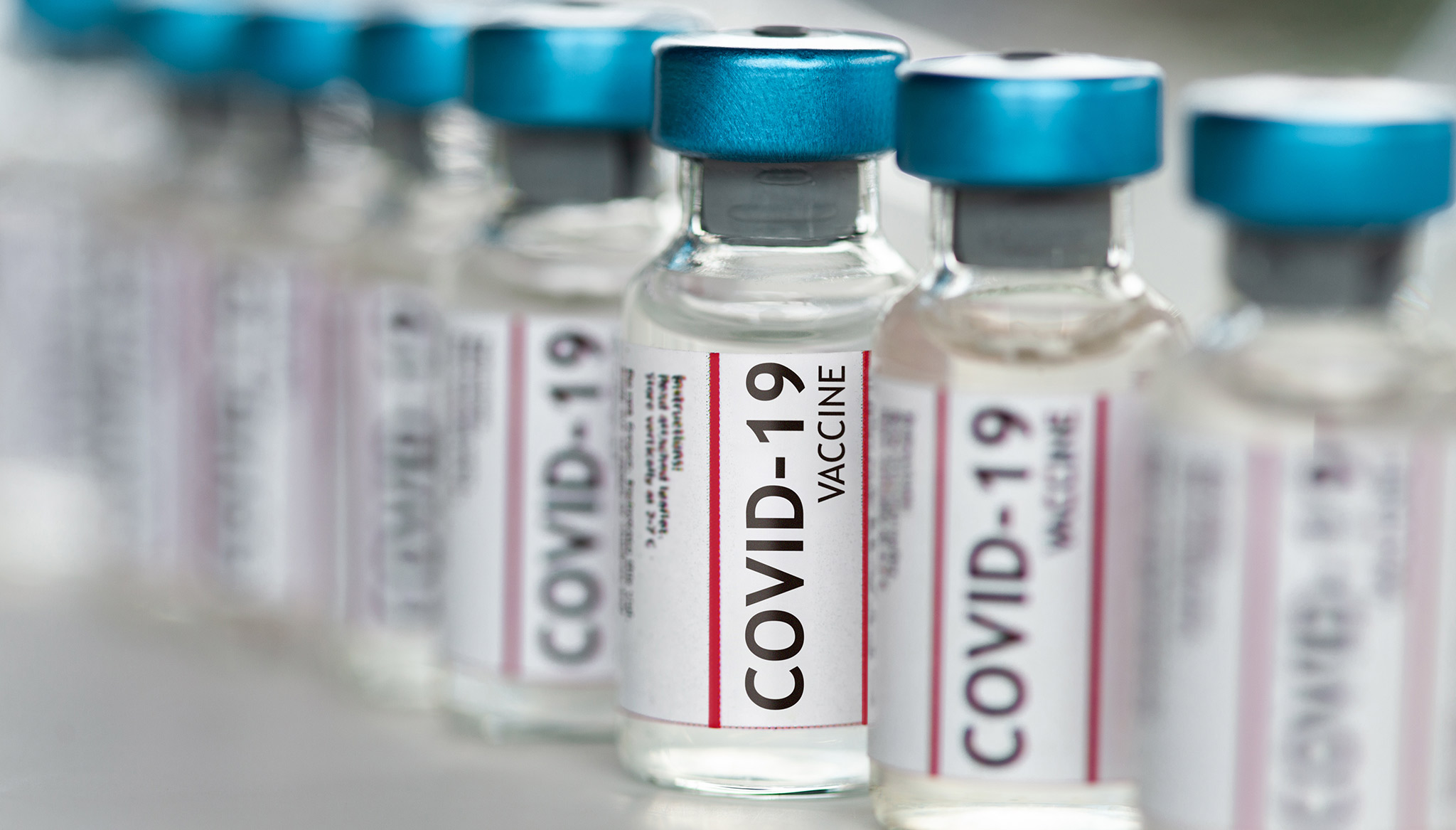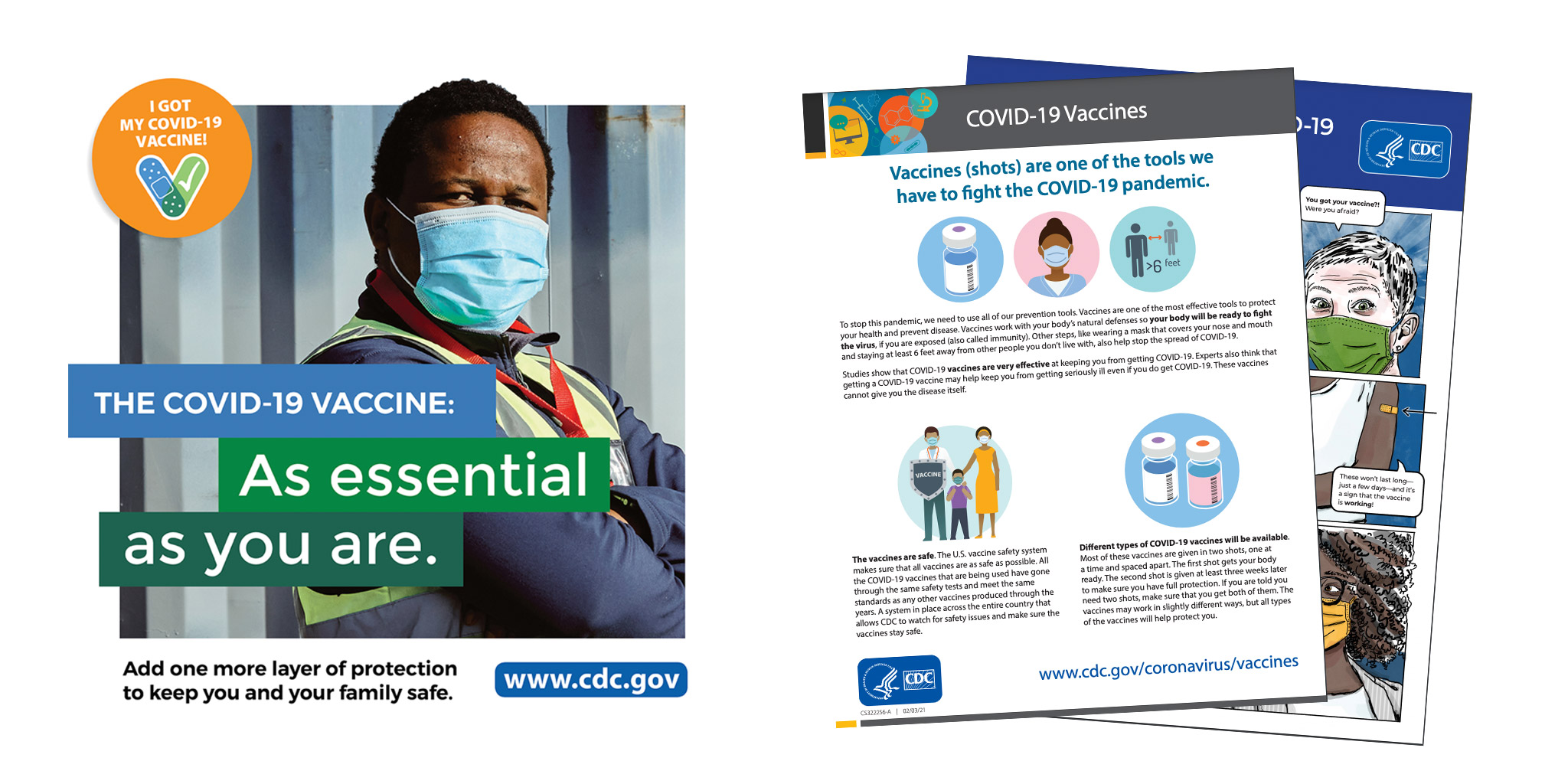
The research, development, approval and distribution of several COVID-19 vaccines in record time represents the greatest turning point in our national effort to defeat the coronavirus pandemic. Twelve months into this costly struggle, which has claimed more than 465,000 U.S. lives and destroyed countless more livelihoods, we now hold the keys to decimate the virus’ rampant spread. Through widespread public vaccination, not only can we save lives – we can give our economy a powerful shot in the arm and accelerate our return to business as usual.
As vaccines become more widely available in the coming weeks and months, employers will face important decisions on how best to protect their employees and establish a safe working environment for all. Below we examine current guidance from government agencies and other helpful resources in navigating the types of questions that are likely to arise.
Can employers legally require their employees to receive the vaccine?
The short answer is yes – but with notable caveats.
In December 2020, the U.S. Equal Employment Opportunity Commission issued guidance on how COVID vaccines apply to existing labor law. In sum, the guidance affirms an employer’s right to mandate that their employees receive a vaccine, as the law permits employers to set "a requirement that an individual shall not pose a direct threat to the health or safety of individuals in the workplace." In doing so, regulations require the employer to show the duration of the risk, the nature and severity of the potential harm, the likelihood that the potential harm will occur, and the imminence of the potential harm.
However, the guidance also notes two exceptions—protected under the Americans with Disabilities Act and Title VII of the Civil Rights Acts—for employees with disabilities or “sincerely” held religious beliefs which prohibit them from receiving a vaccine. In those cases, employers are required by regulation to provide “reasonable accommodations.” And if a reasonable accommodation isn’t possible without causing undue hardship, the employer would need to consider additional federal, state and local laws before pursuing further action:
If an employee cannot get vaccinated for COVID-19 because of a disability or sincerely held religious belief, practice, or observance, and there is no reasonable accommodation possible, then it would be lawful for the employer to exclude the employee from the workplace. This does not mean the employer may automatically terminate the worker. Employers will need to determine if any other rights apply under the EEO laws or other federal, state, and local authorities.
Can employers provide financial and/or other incentives to encourage their employees to get vaccinated?
Yes. However, the same ADA and Title VII Act protections also apply to any incentive or company wellness programs. That means employers must provide reasonable accommodations to employees who object to vaccination on the basis of a medical disability or “sincerely” held religious belief, yet who still seek to “enjoy the equal benefits” of any financial or other incentive being offered to others.
From National Law Review:
In both accommodation situations, it is important for the employer to consider how potential accommodation requests will be handled before the program is implemented. The employer, for example, could require individuals who cannot get the vaccine for legally protected reasons to engage in another activity before receiving the incentive. One option would be for employers to require these individuals to view a training video outlining actions they can take to reduce the likelihood of contracting and spreading COVID-19.
What other measures can employers consider to encourage their workers to get vaccinated?
Education and awareness can be very effective tools. Ensuring employees have access to accurate information is instrumental in helping them making sound decisions about their personal health and the options available to them.

The Centers for Disease Control offers a toolkit with tips on how to start promoting vaccines, resources to communicate with employees and printable materials that can be distributed in the workplace. The Occupational Safety and Health Administration recommends implementing a workplace COVID-19 prevention program and offers lengthy guidance on how to do so.
Is the vaccine safe?
The CDC says yes:
COVID-19 vaccines are safe and effective. Millions of people in the United States have received COVID-19 vaccines, and these vaccines have undergone the most intensive safety monitoring in U.S. history. This monitoring includes using both established and new safety monitoring systems to make sure that COVID-19 vaccines are safe.
Results from these monitoring efforts are reassuring. While some people don’t have any side effects after getting a COVID-19 vaccine, many people will have mild side effects after COVID-19 vaccination, like pain or swelling at the injection site, a headache, chills, or fever. These reactions are normal and show the vaccine is working. A small number of people have had a severe allergic reaction (called “anaphylaxis”) after vaccination, but this is extremely rare and when it does happen, vaccination providers have medicines available that they can use to effectively and immediately treat the reaction. You will be asked to stay for 15–30 minutes after you get your vaccine so you can be observed and provided treatment in the rare case it is needed.
The combination of COVID-19 vaccination and following CDC’s recommendations to protect yourself and others offers the best protection from COVID-19. CDC recommends you get a COVID-19 vaccine as soon as you are eligible.
CDC has more about the benefits of getting a COVID-19 vaccine here. John Hopkins University, one of the global leaders in epidemiological and biomedical research, has more information of the safety and efficacy of the vaccines here.
When will the vaccine be widely available to truckers?
Dr. Anthony Fauci, who is director of the National Institute of Allergy and Infectious Diseases and a key member of the White House COVID taskforce, predicted this week that the vaccine would be widely available for anybody who wants one by April.
Although the federal government provides recommendations on which different segments of the population should receive priority access while supplies are limited, it is ultimately up the leadership of individual states to decide on how the vaccine is rolled out within their own borders. We continue to work through our federation of state trucking associations to press governors and state health officials to include truckers in the same priority pool with other essential and frontline workers.
READ: ATA and state trucking associations urge CDC advisory committee to give truck drivers higher priority access to COVID-19 vaccine
We created this matrix below to track where the trucking industry stands within each state’s prioritization order. We are also in communication with industry partners on how best to create distribution networks to better serve truck drivers, such as through establishing vaccination sites at truckstops across the country.